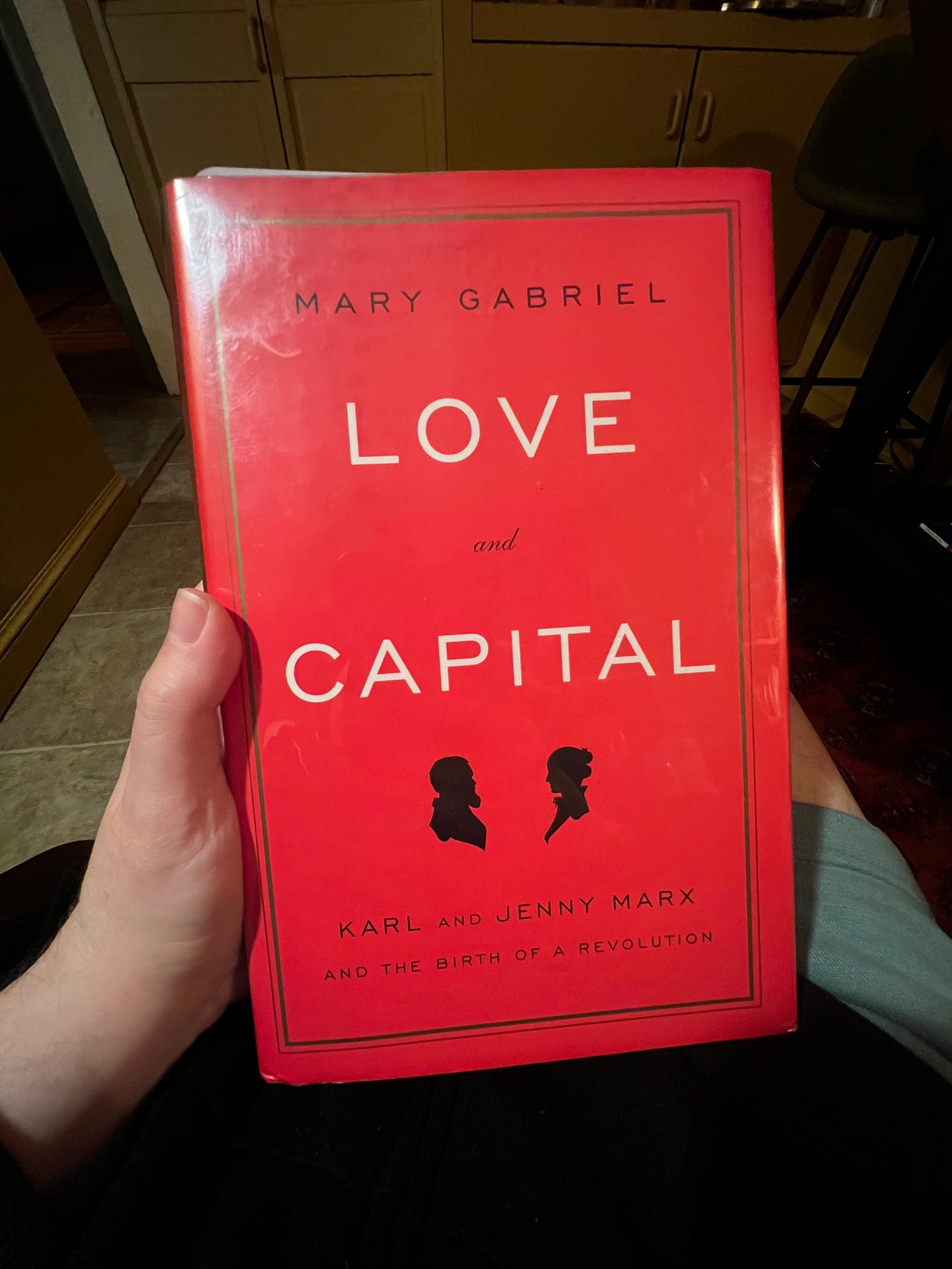Karl Marx kinda had executive dysfunction
PDF Round-up: what I’m reading lately about socialism thru a neuro-d lens
Okay, I know, I KNOW, we’re not supposed to diagnose historical figures with stuff, because our present-day medical categories are products of a specific time and place and cannot be transposed on top of the past, etc etc, I apologize to doctors and historians everywhere, but like:
“He reads a lot; he works with unusual intensity...but he finishes nothing, breaks off everything and plunges himself ever afresh into an endless sea of books."
"Washing, grooming and changing his linen are things he does rarely, and he likes to get drunk.... He has no fixed times for going to sleep and waking up."
“Marx would spend his life stressing the primacy of economics but was chronically irresponsible when it came to his own finances.”
“In response to questions about writing he should have completed, he would often say he was a week or two from finishing, or busy polishing the final draft, or that he had encountered a financial or personal setback that delayed him but was now back on track. Most often he was nowhere near completion. New ideas clashed with existing ones to produce something he was convinced was wonderfully unexpected and important. Under such circumstances how could he tell his mind to simply stop so that he could sit down to write?”
“When he really needed to concentrate, Marx sought refuge in the quiet of the night.”
“In the middle of the living room there is a large old-fashioned table covered with an oilcloth, and on it there lie his manuscripts, books and newspapers, as well as the children's toys, and rags and tatters of his wife's sewing basket, several cups with broken rims, knives, forks, lamps, an ink pot, tumblers, Dutch clay pipes, tobacco ash — in a word, everything topsy-turvy: and all on the same table.... To sit down becomes a thoroughly dangerous business.”1
“Marx had never met a deadline, adhered to length limits, or completed an assignment in the manner requested...”
“..on the day Marx was to have completed his work he was actually only beginning to organize his notes.”
These come from what appears to be a library book that Gray forgot to return at some point, which I found while browsing our bookshelf for something that could keep me occupied in my rocking chair while I regenerate my health bar.
It’s a massive biography of Marx called Love and Capital.2 Mary Gabriel writes the narrative through the lens of his relationship with his wife, Jenny, and the community that formed around them. Until now, Marx has been a very abstract figure in my head, but this book really makes him human again (read: flawed!), and it grounds his work in the historical happenings around his life.3
I’ve never read about mid-1800s Europe, a time when Prussia and France were trying to get rid of their kings and make liberal democracy a thing (with minimal success, and much war) and I had no idea that Marx was married to the daughter of a Prussian aristocrat, or that Engels went to work in his dad’s factory to support them both when they were destitute in London and having like, sooo many kids.4
One thing I’m noticing reading this book is that Marx only survived and got to write because 1. He had a wife and a live-in nanny handling all the admin of his life and 2. His family and friends gave him constant financial, emotional, and intellectual support:
“To be able to work (which is to say, to be able to live), Marx needed the anchor that Jenny and the children provided. He ordered his thoughts only in the midst of their disorder.”
Also, relatable! Gabriel writes against the ‘great man theory of history’ by showing how Marx’s work was really a community effort. He didn’t function executively, but ecologically — which brings me to a paper I’ve been thinking about basically this entire year:


